Our 'Unconventional Optometrist' column is where we chat to optometrists who are a bit out of the ordinary! Do you know anyone who we should feature? Let us know!
My name is Sujan Hong and I am a Korean-Kiwi-American... and soon to become an Australian. I have identity crisis when I have to cheer for sports teams... haha.
What can I tell you about myself?
1. I have 6/6 vision and hadn’t been to an optometrist before studying optometry at university.
2. The primary reason for choosing optometry was because I wanted a respectable degree as a back-up to figure out what I really wanted to do with my life.
3. I graduated with a BOptom, University of Auckland and practised in Auckland, New Zealand as an optometrist for a few years before leaving.
4. Music has always been a big part of my life! I never considered music as a career, but I was fortunate enough to have met a very inspiring music teacher during my high school years who helped me to discover my talent and “almost inspired” me to take up music professionally.
5. I have ABRSM, Royal School of Music for Piano Performance and AmusTCL, Trinity College London for Music Theory. Teaching music could also be a backup career if I really want a career change (!) - although I feel a bit rusty now. I also played timpani with various youth and community orchestra.
6. After optometry, I wanted to travel the world and decided to study Computer Programming. I hated Programming, but landed an amazing opportunity to work as a project manager for a software company.
7. Working in a start-up environment was great experience - it means you have to be really flexible and willing to learn something new - all the time.
8. I briefly worked for a Product Development and Design team with Benefit Cosmetics in San Francisco.
9. I was involved with multiple non-profit organisations in San Francisco and also had my own personal social organisations with over 2000 members (between the two groups)
10. I had a brief appearance in The Five-Year Engagement starring Jason Segel, and played “That Korean Girlfriend”.
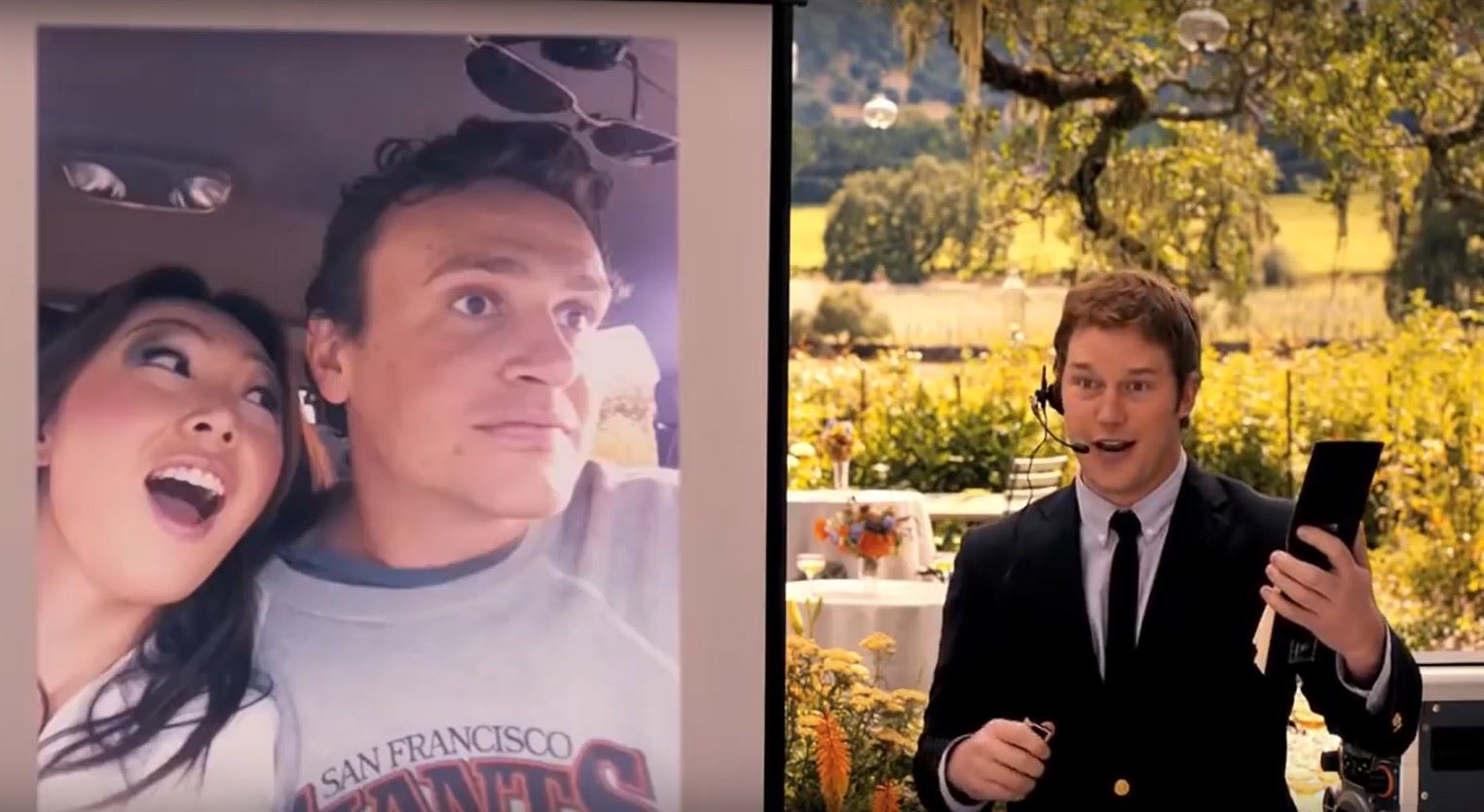
11. I worked as a relief optometrist around NSW with OPSM for a few years.
12. I currently work as Professional Affairs associate with Alcon. I am loving every minute of my job! Please note that the roles of Professional Affairs and Business Development Manager (AKA BDM or rep) are different, and shouldn’t be confused.
13. I don’t really think I knew such a role (Professional Affairs) existed before joining Alcon – so now I make a point of letting optoms know the roles that we each play in helping you grow as an optometrist and as a business.
How did you become involved in helping in a restaurant? How long have you been at it for? Where can we visit your restaurant?
I am a big foodie. I have eaten at many different places around the world and in my hometown, and I also enjoy cooking (I probably have every imaginable kitchen gadget in my kitchen except for Sous-vide which is next on my list).
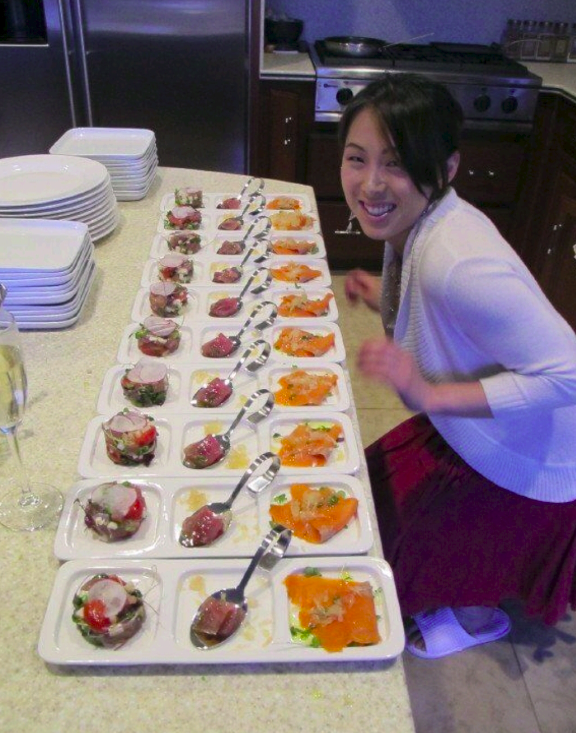
I have always been interested in learning something new and helping others, and I ended up helping some friends set up their new restaurant business. The restaurant, Yuzu Dining is located in North Strathfield, which is about 30 mins drive from Sydney CBD.
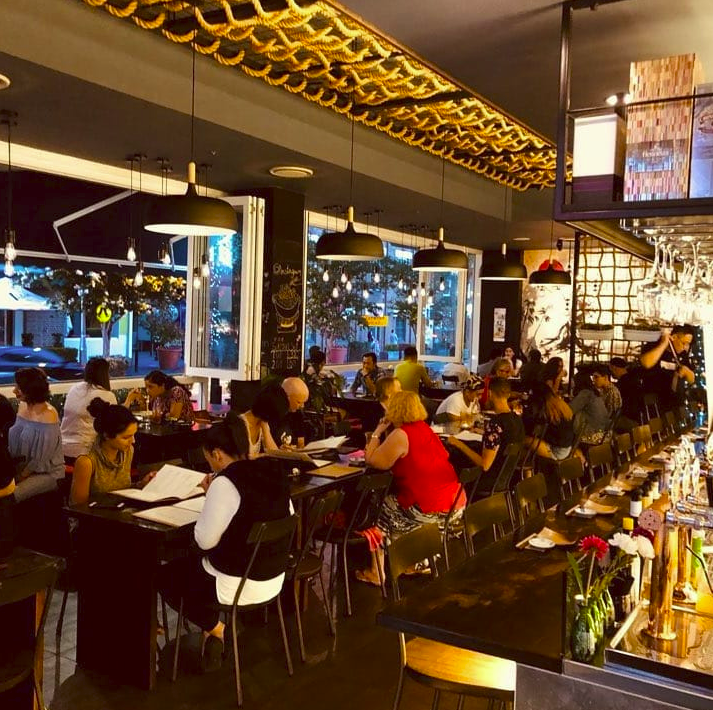
Tell us about your typical day/week at work
What I love about my job is that there is no typical day / week at work. Even when I was working as a relief optometrist for OPSM in NSW, there was no typical day and week - as I was in a different practice working with different people every day / week.
Currently, my week may look like:
Monday: Presenting - Deliver an educational talk to optometrists about how to manage dry eye patients with Alcon’s range of products.
Tuesday:University - Teaching final year students how to fit multifocal contact lenses easily and successfully.
Wednesday: In office prepping follow-up for Monday’s presentation and university teaching session; respond to key questions from client groups and return emails to stakeholders. Set up key meetings for next week and identify what resources are needed. Book flight to next month’s Optometry conference.
Thursday: Liaise with major conference (on Friday) and finalise Agenda and key speaking points. Send through PPT presentation slides and add in 30 sec video to support presentation. Confirm travel and accommodation for next month’s educational roadshow.
Friday: Major Optometric Conference – Introduce a speaker to educate the attendees on how Alcon’s technologies can be used in everyday optometric practice. 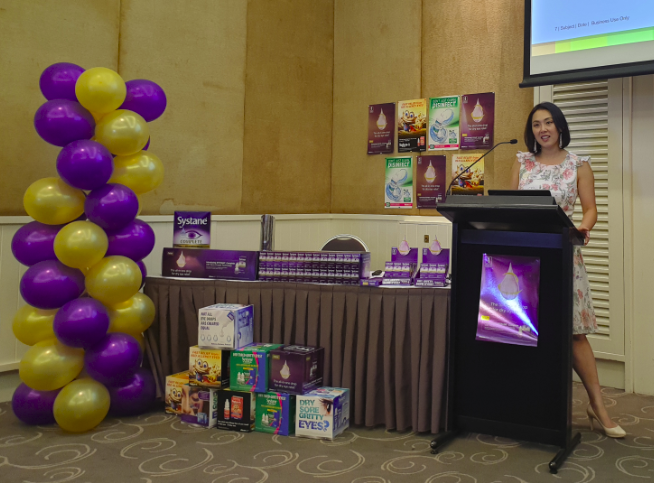
The highlight of my role so far is probably attending the 2019 Asia Pacific Optometric Congress in Manila last month. Seeing the scope of optometry in the APAC region was phenomenal, and optometrists in Australia and New Zealand are so fortunate to be able to practice with such a big scope.
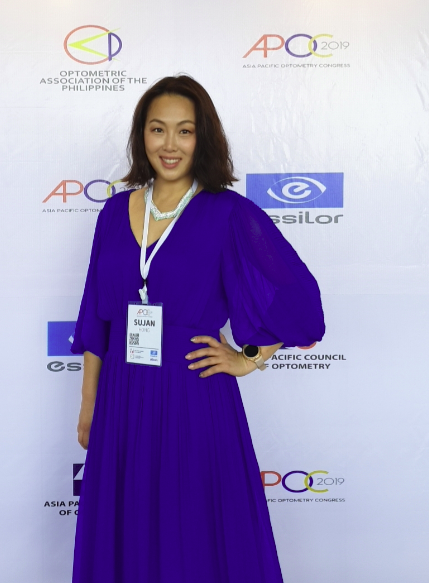
How did you get into this unique area of optometry?
LinkedIn! I was contacted by a recruiter and after several rounds of interviews, got into the business. I wasn’t actively looking for a new opportunity, but sometimes they come knocking at your door. I feel so proud to be working for a company with integrity and huge focus on R&D and feel fortunate to work with so many other smart people and learning something new all the time.
How do you keep up with the optometry world?
Through YOU! I get to meet a lot of optometrists as part of my job. Whilst I may be the one training optometrists, I also learn a lot from the way you all practice. I love being able to share what I learn from different optometrists – such as tips and tricks of the trade – and bringing these back to you so that you can all be the best at what you do. This cycle of listening, participating and sharing back is how I can give back to our society – practising optometry vicariously through you!
Do you have any goals for your optometry career?
In the past, I was fulfilled through providing the best clinical advice and service to each individual patient that I saw. Since working in my new role with Alcon, I’ve realised that I could have been even better as an optometrist had I known even half the things I have learnt since joining the company. Because of this, I’m always eager to share as much as I can with every optometrist I meet and in the future, I’d like to bring together optometrists so we can work together to make the industry stronger. I also wish I could incorporate the scope of optometry in the Asia Pacific region and create stronger alignments with what we do in Australia and New Zealand somehow. Australian optometrists are very fortunate to have Optometry Australia working continuously to keep our industry strong. Some optometrists choose not to become OA members because of cost involved (myself included!) but Tim Grant, who is the Head of Asia Professional Affairs for Alcon and is also like a godfather figure when it comes to silicone hydrogel contact lenses (he was part of the team that launched first ever silicone hydrogel contact lenses in the WORLD with CIBA vision) said something very poignant. He said “We pay forward with our fees to OA. The fees paid by previous members are why we are in a strong clinical position, same for us to pay forward for future development even if we do not receive the benefit.” I couldn’t agree more and was again grateful to work with and to learn from a great leader in the industry. (and I will be joining OA for this reason!)
What keeps you sane outside of your work life? Do you have any hobbies or passions you pursue?
I love to eat! But in order to eat, I have to exercise! One thing I miss due to my travel and work is being able to do a daily workout. I used to cover K-Pop and upload to my personal YouTube channel. I also used to transcribe music for subscribers, so they could play what I play by ear but I don’t really have time to listen to or play piano either. If I had the time, I would love to learn the guitar and the violin (since they are both more portable than a piano!). If I had more time, I would brush up on languages learnt and learn a new language – if I can speak Japanese, Chinese, Spanish and French enough to have a conversation - I would be happy! Other than that, I love all living things and enjoy planting and seeing my compost worms eat and reproduce.
It's easy to get stuck in the bubble of Optometry. What's something that you wish optometrists knew about other industries?
I think for most people, once they get into a certain industry, they stay in it for the long haul for various reasons. Sometimes you may want a career change, but the industry may not be willing to take on someone mature even if you are willing to start from an entry level position. Alternately, it may be hard to let go of what you already have and to start afresh.
I think being a specialist in one industry has its merits - but I think it’s important to know whether you want to be a specialist in that one industry. You may not know until you have had exposure to a wide variety of industries whether your passion lies in that industry, or if in fact you want to be elsewhere. When I started out, I never had the mindset of being in optometry for the long haul, so that’s maybe why I ended up exploring other options.
Following the various experiences I have had and growth in understanding of myself, I’ve identified that my core professional motivation was to work in an industry where I can make a genuine difference in the quality of life of people. To me, this narrowed my focus to the healthcare industry, but I don’t think I would have come to that conclusion if I had stayed in Optometry for 10 years.
From my perspective, if you want to explore other options, put 200% into whatever industry you settle on, and give yourself a decent time period to get invested and explore where you and the industry fit before evaluating whether to stay or go – I recommend this as what you experience and learn within 3 months is very different to what you’re capable of learning over 3 years.
What advice would you give to other optometrists who also wish to pursue this type of optometry?
I think being an optometrist is a wonderful and rewarding career even though it can be disheartening for some with the current direction of the industry. If we continue to provide our patients with what we have signed up for when we started our degrees – that is, providing primary eye care and making a difference in the quality of our patients’ lives with passion and empathy – then we’ll have the impact we seek. I hope over time people will appreciate and see the important role that optometrists play in this society.
Having optometry background also doesn’t limit you to consult rooms either. There are professional affairs / services roles with various optical and medical device companies where your role is to educate other eye care professionals on how to most effectively use their products to provide best eye care. You can also head non-profit organisations such as Eyes4Everest or Glaucoma Australia to provide eye care for people with limited access to such services; and to raise awareness about certain medical conditions that maybe affecting the eye.
Or maybe you can simply go into a totally different industry! What you learn at university is only a foundation for what you need in your life. I think what you truly learn at university is discipline (studying for all those exams) and working with others (teamwork) which form a crucial basis for everything that you do in life.
For anyone wanting to ask any questions about my job(s), or just how to navigate through life as young optometry graduate – you can reach out to me via LinkedIn: https://au.linkedin.com/in/sujanhong.